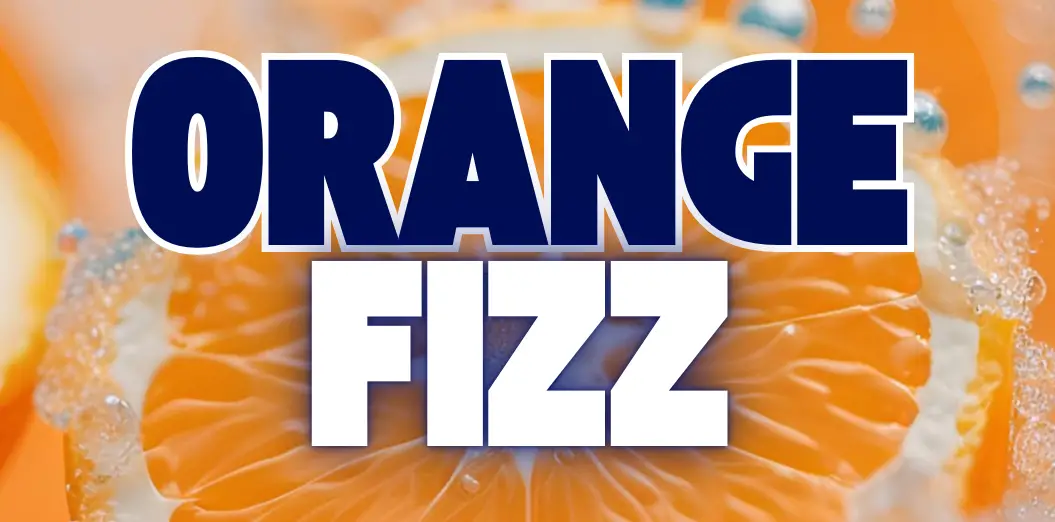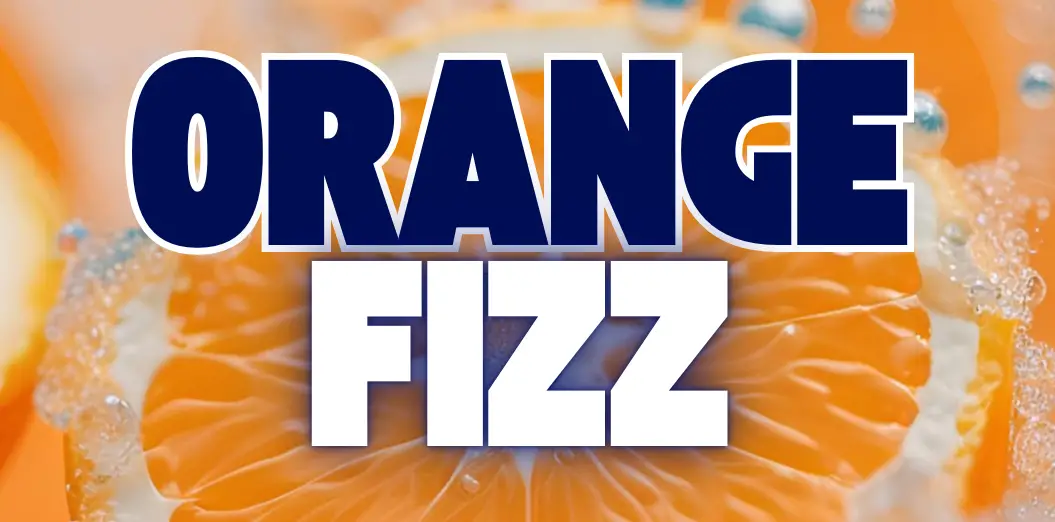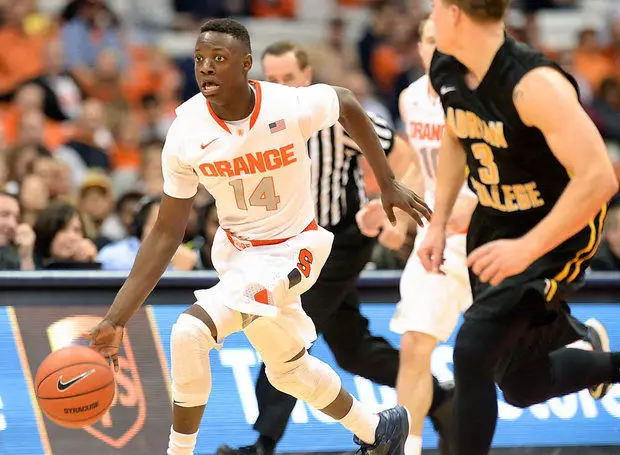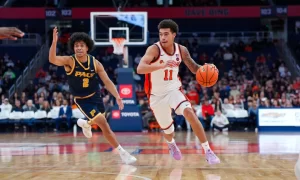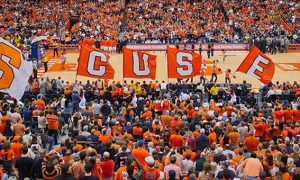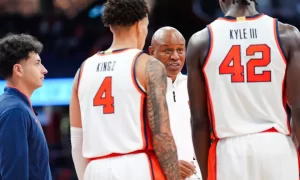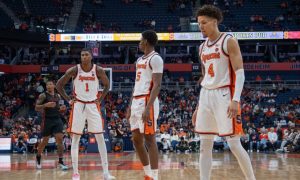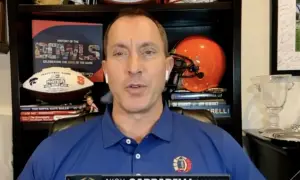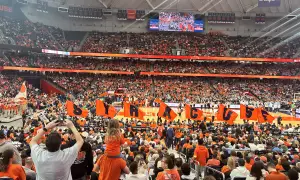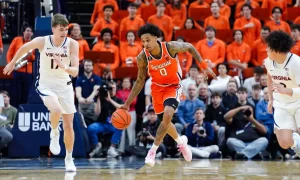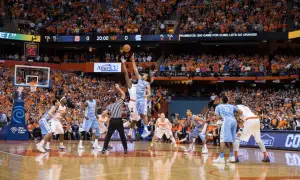Yesterday morning, the NCAA rules committee chair, Rick Byrd, told ESPN that the shot clock in men’s basketball will likely be shortened to 30 seconds, from 35 seconds.  While this is certainly an improvement and is sure to increase the action, it still falls short of its professional counterpart – the 24-second shot clock.
Shortening the clock to 30 seconds will have a few effects on the college game.  First, it will create more offensive possessions per game.  Second, it will place a bigger emphasis on ball movement, play calling, and penetration into opposing defenses.
The shortened shot clock was tested in preseason exhibition games last season and in postseason tournaments like the NIT.
This rule change would have hurt SU if it were implemented at any point before this past season.  The Final Four bound team led by Michael Carter-Williams averaged 67.6 offensive possessions per game, working the shot clock in order to get quality scoring chances.
In 2013-2014, the numbers were even more startling, with SU only averaging 62.4 offensive possessions per game: ranked fifth-to-last in the nation.  The team had very little ability to drive and score, and relied heavily upon patient Tyler Ennis to find the team good scoring opportunities.
However, last year saw a little bit of an improvement, with the Orange getting back to its fast-break roots.  The Orange averaged 68.4 offensive possessions per game, behind a true freshman point guard.
Next season, the 30-second shot clock should definitely help SU get up and down the floor more frequently on offense, and also bolster the defense.  The zone defense will be the biggest beneficiary of the rule change, mainly because teams cannot just pass the ball around for long amounts of time waiting for a screen to distort the zone’s rotation.  The defense, instead, will have to hold tightly for less time than it has in the past, which means that the opponent will get less quality scoring chances.  Look for an increase in forced shot clock violations next year.
On the offensive end of the floor, SU will have a second-year, dynamic point guard who should have more confidence in his ability to score.  Always looking to run the floor, the Orange will have an array of jump shooters to work with as well as a decent rebounding presence inside.  This means that the team should not struggle to score and get high quality shots like it has in the recent past.
Coach Jim Boeheim is an advocate for an even shorter shot clock, telling the media on Saturday night that a 24-second shot clock allows teams to climb and battle back into games with little time on the clock.  He worked with this timer when coaching for Team USA in international competition.
Posted By: Jason Weingold
